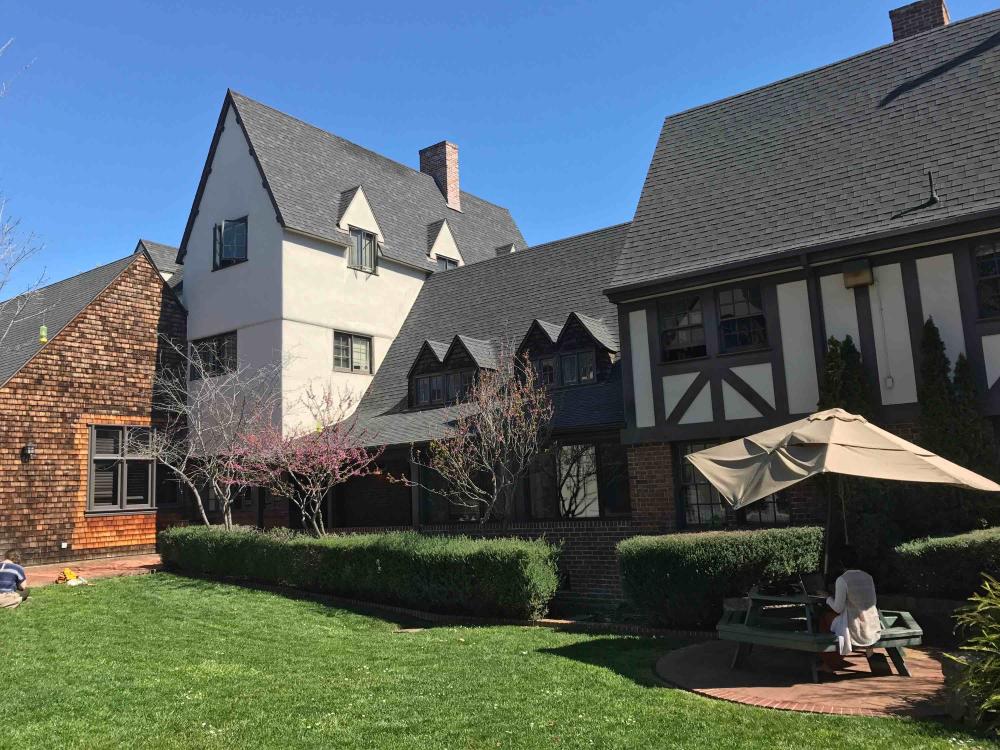
mfmpp
Members-
Posts
23 -
Joined
-
Last visited
Profile Information
-
Application Season
2016 Fall
Recent Profile Visitors
918 profile views
mfmpp's Achievements

Decaf (2/10)
3
Reputation
-
@Ella16 @LifeOnMars Goldman itself doesn't have many international classes. I can only think of two classes this semester -- Michael Nacht's U.S. Nuclear Policy and Nuclear Security classes -- that have anything to do with international policy. But university-wide, there are many internationally-focused classes. (In particular, you might look at electives through the Master of Development Practice/Energy & Resources Group/Agricultural & Resource Economics programs.) There are lots of student clubs at GSPP that focus on international policy and many of their members find internationally-focused internships each summer (USAID GDF, World Bank, IADB, etc). Also, students at Haas (the business school) just opened up their International Development and Enterprise Club to all graduate students and they circulate opportunities about international development-related talks, mixers, and internships. The list of GSPP student clubs is here: https://gspp.berkeley.edu/student-life/gspp-student-groups Note the clubs on environmental policy food and ag housing and urban policy general international policy Latin America migration and refugee First-year is mostly taken up by core and second-year is mostly free for electives. However -- even with your first-year core courses, you still have credit room left over to take 1-2 elective courses per semester. Minimum course load is 12 credits, average is 16, and pushing it is 20. Last semester, my core courses took up 12 credits and I took another 7 in elective. This semester, I'm only taking the core courses (again 12 credits) because I overextended myself last semester and didn't want to do that again (especially because some classes require more work than their credits would suggest). For example, a core class this semester is Introduction to Policy Analysis, where we learn an analytical method developed here (called the Eightfold Path) and then apply it through a series of time-sensitive assignments and a consulting project for a real-world client. It's 4 credits, but with the consulting project, it takes up a lot more time than a normal 4-credit class. People vary in how much they can take on, though. While I'm only taking 12 credits, a friend of mine is taking 21. I know plenty of other first-years taking classes right now at Haas, at the Public Health school, at ARE, and at the law school. And here's another thing: your grades aren't terribly important. This is true regardless of which policy school you go to. Unless you plan on getting a PhD eventually or you want a top-tier consulting job, employers don't care about your grades. Personally, I feel like this has given me freedom to explore the campus and get involved with clubs and group projects that I wouldn't have joined if I were sweating about grades all the time. On that point, I feel like I definitely have freedom to explore different policy areas, but because I'm not taking any electives this semester, those opportunities come through the many speakers, mixers, and film screenings that happen at Goldman and around campus. There's probably 7-10 policy-related events happening each week across the university. @coffeewalk, I chose Berkeley (over compelling financial offers from elsewhere) mainly because I thought I would be happy here. I am fortunate in that I am able to finance my education without much debt, and so I didn't have to make cost the deciding factor in where I went. I went to a small undergrad and wanted a smaller environment, and felt there was a nice camaraderie here when I visited. Additionally, I was attracted to the well-known rigor of the school's quantitative training. I figured if I were going back to school to pick up a versatile quantitative skill set, I should go to the place that I think will test me the most in that regard. (And having just completed a difficult econometrics problem set, I can say that yes, it is seriously challenging me.) Other reasons included my interest in food policy, which the greater Berkeley community is a hub for generally, and also the nice weather, which I wanted for my mental health. Those are the reasons I came here, but now that I've been here a while, I would say that one of the unsung high points of Goldman is the career services department. They are exemplary -- constantly letting us know about internships and jobs, offering interview prep, staging information sessions, and connecting us with alumni both on campus and off. Constantly. They've staged trips for us in DC and Sacramento and will put in lots of individual time with you to help you find the specific opportunities you are looking for. Also, the alumni network is amazing in how much alumni want to help you, which I have heard is something that distinguishes GSPP from HKS, which has many more degree types and many more alumni spread out across those degree types. GSPP is small, concentrated mostly on MPPs, and alumni treat you almost like family as a result.
-
 fallmpp2017 reacted to a post in a topic:
Berkeley Goldman MPP 2017
fallmpp2017 reacted to a post in a topic:
Berkeley Goldman MPP 2017
-
No problem! Happy to do it. There are lots of 50% and 25% GSI positions available. Finding an academic appointment is more related to your prior experience than what year student you are. I know many first-years holding down 50% GSIs, but they had strong prior experience with the subjects that they were working in (e.g., Econ undergrad -> Econ GSI). I'm not sure if I'd call it easy to get an academic appointment because I know some very-qualified people who look for and failed to get one. But there are lots of available positions every semester you'll definitely have a good shot of getting one. Hope that helps!
-
Sorry, I don't know anyone here who is a beneficiary of that scholarship.
-
Agree, she's the one to talk to. But it'll be difficult, if not impossible, to get additional funds. (I tried last year, without success.)
-
Best guess is to write a very nice e-mail to Martha with the hopes that it'll get you moved up on the waitlist.
-
Agree. If you work at 50% time each semester and get in-state tuition for your second year (you will) then your debt load should be very manageable. IMO, what makes Berkeley expensive is more the cost of living in the East Bay than the tuition and fees.
-
Highly doubt you'd be at a disadvantage as an international student, though I don't know if there are rules regarding visas or the like that affect your work eligibility. If you're asking whether you can increase the amount of time of your appointment -- like if you're offered a 25% time position and you want to expand it to a 50% time position -- I don't think that's something you can do. Also, if you end up working more than your assigned hours -- like working more than 10 hours with a 25% appointment -- you're not paid more.
-
Also -- while you won't be able to secure a position before you have to make a decision about choosing GSPP -- it's possible to get a position over the summer before you start classes. One person in my cohort got a GSR position in June. One of the GSPP staff will begin forwarding you announcements of positions in May or so and you're free to begin applying to them then.
-
There are a few types of academic positions at Cal: Graduate Student Instructor (GSI, like a TA) Graduate Student Researcher (GSR, like a RA) Reader (grader) and Tutor. There are a lot of each, so if you'll probably be able to get one if you want one (especially if you're well-versed in a particular subject). Or not, some people I know got random GSI positions they had no background in which case you basically take the class along with the undergrads and stay a week ahead of them. GSIs are easier to get than GSRs and readers are common too. You'll get some kind of tuition and fee remission if you work above 24% time (about 10 hours a week). The more you work, the more remission you get. The highest amount is 50% (40 hours a week) where you get full fee remission and a hefty chunk of tuition waived (I think full out of state tuition) along with some kind of salary. More authoritative information here: http://grad.berkeley.edu/financial/graduate-student-employment/guide/ GSPP doesn't have tremendous financial resources and if you didn't get some kind of award upon your admission it's not likely you'll get one in the future. I'm not sure what external opportunities there or what opportunities there are on the university level. Re funding for admit day, I'd check with Martha Chavez, the dean of students (martha_chavez@berkeley.edu).
-
Congratulations to all those who were admitted! I'm a current Goldman first-year and would be happy to answer any questions you may have.
-
My decision came out March 7th last year.
-
Current Goldman student. On Friday, I talked with the person who will press "send" on the decision e-mails. They're working on it. Think they meant to send them out the other day but something went wrong with the system.
-
I'd guess yes. A lot of people come in with very little stats/econ at all.
-
 kbui reacted to a post in a topic:
LBJ School vs Georgetown McCourt?
kbui reacted to a post in a topic:
LBJ School vs Georgetown McCourt?
-
I'm in a similar position, albeit with Berkeley GSPP. I went to the Hopkins admit day last Friday (perhaps we met?) and was taken with the intimate feeling of the program. I was a little surprised to learn that the program doesn't consider itself a public health-public policy program, but rather a general public policy program situated within a public health school. The quant courses seemed to be pretty good, so far as I could tell, and now that I've had a chance to look at more detailed employment statistics it doesn't seem like the prospects coming out of Bloomberg are paltry by any means. But..... my other option is Berkeley, which is just a better-known program by all that I've read. How important is prestige really, and why would the Hopkins MPP not be considered prestigious? The Bloomberg School, and Hopkins as a whole, are fabulous.


